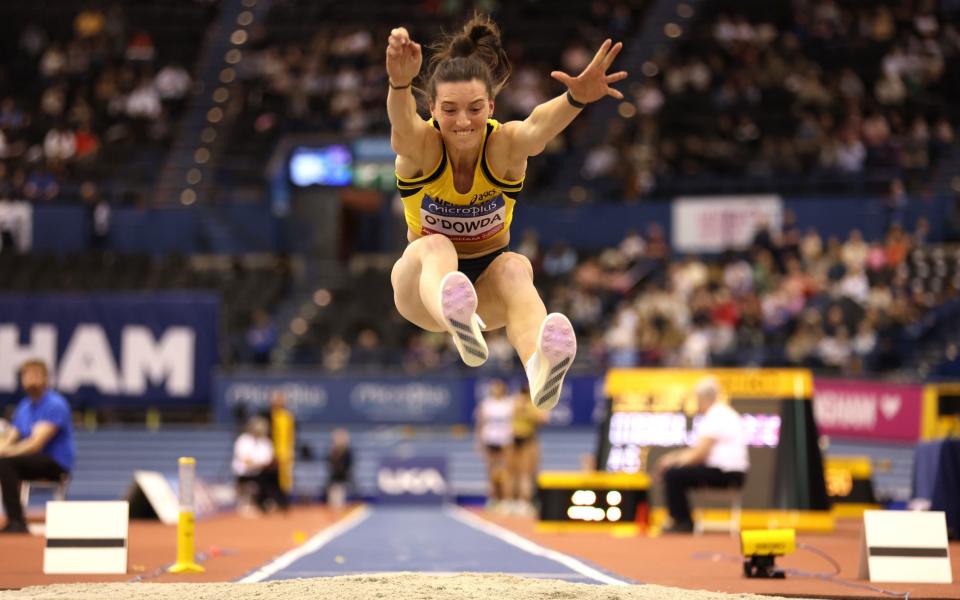Carl Lewis: ‘New long jump proposal an April Fools joke’

Carl Lewis, the world’s greatest-ever long jumper, has dismissed plans to trial changes in the event as an ‘April Fools joke’.
World Athletics is considering the most radical overhaul of the long jump since it became one of the inaugural events of the first modern Olympics in 1896 by testing a new ‘take-off zone’ from which competitors can leap instead of the usual fixed board.
It was found that 33 per cent of jumps at last year’s World Championships were fouls and administrators are looking at ways to make athletics more fan friendly and appealing.
The idea was outlined by Jon Ridgeon, the World Athletics chief executive, after its president Sebastian Coe had said last summer that the sport was in “a race against time” to stay relevant to young people. “It was Einstein who defined insanity as doing the same thing over and over and getting the same results,” the double Olympic 1,500 metres champion said.
Coe was not specifically talking then about the long jump but has spoken repeatedly in recent months about the need for athletics to evolve.
Lewis, who is a quadruple Olympic long jump champion and double World Championship gold medalist, responded to news of the proposed change on the social media platform X.
“You’re supposed to wait until April 1st for April Fools jokes,” he wrote. “It wouldn’t change the distances that much. You would just see more bad jumps measured.”
I guess It supports what I've been saying, that the long jump is the most difficult event in track and field. That would just eliminate the the most difficult skill from the event. Just make the basket larger for free throws because so many people miss them. What do you think? https://t.co/KwnjSoFj1L
— Carl Lewis (@Carl_Lewis) February 20, 2024
The proposals would virtually eliminate the possibility of a foul and mean that jumps would always be measured from wherever the competitor has actually taken off rather than one universal start point. It would also mean that the athlete who had finished furthest down the long jump sand-pit would not necessarily be the winner. Organisers also want to introduce a measuring device that would display instant results to fans.
The ideas will initially be tested at low-level athletics meetings this year and, although a new concept could be introduced in elite competition in 2026, there is no prospect of change before this summer’s Paris Olympics.
The origins of the long jump can be traced all the way back to the Ancient Olympics and, with javelin, discuss, running and wrestling, it was a documented part of those Greek Games as far back as 708 BC.
Ridgeon had already predicted that the idea would face a backlash and stressed that they were only exploring different ways of organising events. “You cannot make change in a sport that was basically invented 150 years ago without some controversy,” he told the Anything But Footy podcast.
“If you have dedicated your life to hitting that take-off board perfectly and then suddenly we replace it with a take-off zone, I totally get that there might be initial resistance.
“We will spend this year testing it in real-life circumstances with very good athletes. If it doesn’t pass testing, we will never introduce it. We are not going to introduce things on a whim.
“We really want to spend the next two years thoroughly working them through. This is not about next year, but making sure we have got a sport that is fit for purpose for another 150 years.”

 Yahoo Sport
Yahoo Sport 





































